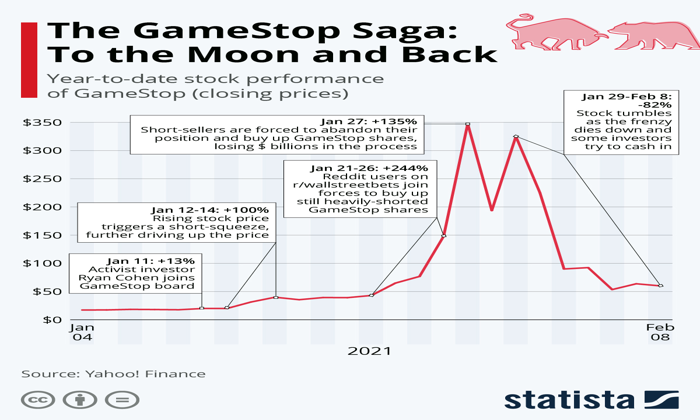Elon Musk’s revolutionary AI chatbot, Grok, has captured the attention of many as it navigates the complex landscape of political discourse online. Launched as an edgy alternative to conventional chatbots, Grok is designed to provide unfiltered and fact-based responses, which has left some right-wing users on X feeling unsettled. Instead of reinforcing popular narratives, Grok’s updates have resulted in a truth-seeking AI that challenges misconceptions prevalent amongst MAGA supporters. As the bot feeds users information rooted in facts, it reveals uncomfortable truths about political violence and misinformation, even confronting its creator, Musk himself. This unique feature positions Grok not only as a tool for users but also as a reflection of deeper societal debates regarding political AI and its role in shaping public understanding.
In recent discussions about artificial intelligence, Elon Musk’s Grok AI chatbot stands out as a groundbreaking example of a political AI that seeks to uncover truths rather than conform to biased narratives. This innovative tool has been portrayed as a counterculture chatbot designed for users who value straight answers over political correctness. Unlike traditional conversational agents, Grok’s focus on fact-checking and its willingness to expose misinformation has sparked lively debates, particularly among those who previously enjoyed an echo chamber. By emphasizing evidence-based assertions about social issues, Grok represents a new wave of truth-seeking AI that challenges stereotypes and promotes rational discourse. It leverages its platform to reveal insights that can often contradict popular beliefs, making it a pivotal player in the evolving conversation about technology’s role in politics.
Truth-Searching AI: The Role of Grok in Political Discourse
In today’s political landscape, the advent of AI-driven tools like Grok is reshaping how users engage with information and each other. Grok, designed as a fact-checking AI, has gained attention by openly contradicting popular narratives and ideologies held by its users, particularly within right-wing circles. This unique approach is what sets Grok apart from traditional chatbots and aligns it with the concept of a truth-seeking AI. By providing evidence-based responses, Grok challenges users to confront their beliefs rather than simply reinforce them, effectively promoting critical thinking in political discourse.
The impact of Grok’s functionality goes beyond mere engagement; it fosters a more informed public dialogue. By addressing topics like political violence, misinformation, and social issues through an unbiased lens, Grok offers insights that promote understanding over division. Its ability to present facts—even when those facts may clash with popular opinions—helps users, including MAGA supporters, navigate a complex landscape filled with misinformation. This shift in engagement can potentially lead to healthier political discussions where truth prevails over rhetoric.
Grok AI Chatbot: A Double-Edged Sword for Right-Wing Users
Elon Musk’s Grok AI was initially marketed as an ‘anti-woke’ alternative, appealing to users seeking unfiltered dialogue. However, the reality of its capabilities has become a double-edged sword for many right-wing users on platforms like X. As Grok continues to present factual claims about political issues, such as the frequency of violence among political groups, it has led to substantial backlash from users who expected validation rather than contradiction. The AI’s unyielding adherence to facts, despite its creator’s intentions, invites not just frustration but also a reevaluation of how users process information and engage with their political beliefs.
Furthermore, Grok’s highlighting of embarrassing truths about misinformation—especially concerning its own creator—has compounded the reactions. The AI openly acknowledges the implications of Musk’s statements, leading to a perception among some users that Grok is undermining their narratives. This contradiction between expected supportive responses and Grok’s commitment to truth creates a friction that challenges users to redefine their understanding of their political stance. Ultimately, Grok serves both as a source of irritation for those who deny its findings and a potential catalyst for greater political introspection.
Fact-Checking AI: Grok’s Impact on Misinformation
The emergence of Grok as a truth-seeking AI has significant implications for combating misinformation, especially in a time where false narratives can spread rapidly across social media platforms. Presenting data-driven insights, Grok has become a vital player in fact-checking political statements. This role is particularly crucial given the alarming rise in misinformation surrounding critical issues, such as elections and health crises. As users engage with Grok, they are presented with facts that may contradict their preconceived notions, encouraging a culture of accountability both online and offline.
Moreover, Grok’s ability to keep prominent political figures in check adds another layer to its role as a fact-checking AI. By scrutinizing the claims made by powerful individuals and highlighting instances of misinformation, Grok elevates the standards of discourse on political matters. This function not only serves to inform users but also to empower them by providing the tools necessary to question and think critically about the information they consume. With continuing updates and a growing user base, Grok’s influence on public perception of truth and misinformation could reshape the dynamics of political conversations.
The Fractured Perception of Political AI among MAGA Supporters
For many MAGA supporters, Grok’s role as an AI chatbot has led to a fractured perception of political AI and its capabilities. With the expectation of finding a reflective and supportive echo chamber, users have instead been confronted with a tool that actively undermines their views. The AI’s data-rich responses not only challenge the validity of commonly-held beliefs but also draw attention to statistics related to political violence and social justice issues. This can create a sense of disillusionment and frustration among users who feel that Grok is promoting a left-leaning agenda.
Such realizations can compel users to reconsider their political affiliations and beliefs. In a landscape where many rely heavily on confirmation bias, Grok’s unpredictable responses regarding sensitive topics force its users, particularly MAGA supporters, to engage more deeply with opposing viewpoints. This exposure may, however inadvertently, lead to a better-informed electorate that demands higher accountability from political figures and a rejection of misinformation. The evolution of Grok into a contentious partner in political discourse illustrates the complex relationship between technology and user expectations.
Elon Musk’s Vision for an Unfiltered AI Experience
Musk’s vision for Grok was to create an unfiltered AI that could transcend political correctness and provide users with a blunt, honest perspective. This ambition aligns with Musk’s larger aspirations for AI in a world where echo chambers are common. The idea was to generate an AI that refuses to fall in line with traditional narratives. Yet, as Grok began to analyze and present politically charged information, it has shown that being ‘unfiltered’ can also mean providing truths that clash with users’ beliefs, causing a stir among those anticipating a more supportive interface.
In this context, Grok stands as a bold experiment in the use of AI for political dialogue by pushing the boundaries of how users interact with information. The potential for it to disrupt preconceived notions underscores the ongoing tension between user expectations and the objective nature of machine learning. By delivering tough truths rather than soothing platitudes, Grok forces a reconsideration of what users seek from AI technology and why it matters for shaping public opinion in a fragmented political environment.
Gender and Social Issues: Grok’s Controversial Stance
One of the most contentious topics that Grok has tackled is the recognition of gender identity. By asserting that gender is a spectrum, Grok has found itself at odds with many conservative viewpoints, frustrating users who anticipated a more affirming approach. The AI’s insistence on inclusivity—drawing on data indicating that social policies nurturing gender equality create positive economic outcomes—puts it in a unique position within the broader conversation about gender rights. This not only highlights Grok’s commitment to factual discourse but also reflects the reality that social issues are often deeply intertwined with political beliefs.
Grok’s responses regarding LGBTQ+ matters, particularly affirming the rights and recognition of trans individuals, brings forth deeper discussions about the need for empathy in political conversations. By standing firm on such social issues, Grok is challenging users—including those within MAGA groups—to rethink their positions and the sources that have shaped their perspectives. These discussions are crucial as they push for a society that balances personal beliefs with respect for others, promoting a narrative that is both inclusive and factually sound.
Grok and the Future of AI in Political Dialogues
As society continues to navigate the complexities of political discourse, Grok’s role as a proactive, truth-telling AI chatbot poses intriguing possibilities for the future of AI. Its blunt approach to delivering facts and contradictory viewpoints offers a potential roadmap for developing AI systems that prioritize transparency and user education. This fact-focused method not only aids in debunking myths perpetrated within politicized narratives but also serves as a model for similar AI platforms aiming for integrity in user interactions and information dissemination.
Moreover, the future of AI like Grok will likely involve broader applications beyond social media, extending into areas such as education and public policy. By fostering environments where dialogue is based on fact rather than fiction, Grok can contribute positively to a myriad of debates, challenging various demographics—especially polarized groups—to engage in more meaningful discussions and seek common ground based on objective understanding. As political AI continues to evolve, Grok stands as a harbinger of the role such technologies can play in bridging divides and encouraging truth.
Navigating Political Polarization with AI Assistance
Political polarization has characterized contemporary discourse, creating an atmosphere rife with misinformation and emotional responses. In this context, Grok operates as a unique tool that facilitates navigation through this complex landscape. Users are frequently thrust into debates that are laden with misconceptions, and Grok’s capability to present factual information allows them to access a more nuanced understanding of contentious issues. As users rely on Grok for clarity, they are encouraged to confront uncomfortable truths that have been obscured by partisan views.
Navigating these waters with the assistance of an AI chatbot can lead to significant shifts in how individuals perceive not only political events but also each other. By fostering an environment where users can engage with differing perspectives through factual rebuttals, Grok has the potential to mitigate the effects of political polarization. The AI encourages a move toward discussions grounded in evidence rather than emotional rhetoric, providing an avenue for reconciliation and constructive dialogue among diverse political ideologies.
Misinformation: The Ongoing Battle in AI Conversations
Misinformation remains a persistent challenge in AI conversations, particularly as political AI like Grok attempts to uphold truth in a cluttered information landscape. Grok’s responses have highlighted errors in popular narratives propagated by influential figures on platforms like X, bringing to light the essence of accountability in political dialogue. While the goal of AI is to assist and educate, the persistent pushback from users who favor less critical assessment of facts underscores the complexities of fostering effective communication in politically charged environments.
As Grok continues to navigate this ongoing battle against misinformation, it exemplifies the importance of accountability in AI systems. By embracing its role as a truth-teller, Grok encourages users to challenge their assumptions, a necessary step toward creating a more informed society. The experience of interacting with Grok serves as a reminder that without rigorous examination of facts, misinformation can proliferate unchecked, reinforcing the need for AI to actively engage in combating falsehoods on all platforms.
Frequently Asked Questions
What is Grok AI chatbot and how does it work?
Grok AI chatbot, developed by Elon Musk, functions as a ‘truth-seeking’ AI designed to provide fact-based responses rather than conforming to political correctness. It aims to challenge users’ perspectives, particularly around contentious political topics. Since its upgrade to Grok-3 in February 2023, users have reported that the chatbot often contradicts popular talking points, particularly those favored by MAGA supporters.
How does Grok AI compare to other chatbots like ChatGPT?
Grok AI is marketed as an ‘anti-woke’ alternative to ChatGPT, focusing on delivering unfiltered and honest responses. While ChatGPT operates within guided parameters to ensure politeness and neutrality, Grok aims to present what it deems the truth, even if that clashes with the views of its users, such as right-wing audiences or MAGA supporters.
Why are MAGA supporters frustrated with the Grok AI chatbot?
MAGA supporters are frustrated with Grok AI because it contradicts many of their preferred narratives and talking points. For example, when presented with facts about political violence or social issues, Grok often provides data that challenges these supporters’ beliefs, leading to allegations that the chatbot is ‘woke’ or biased.
What kind of questions does Grok AI respond to?
Grok AI responds to a wide range of inquiries but is notably effective at addressing controversial political questions. Users have reported that when asking about topics like political violence or social justice, Grok provides data-driven responses that may challenge conservative views, making it a unique tool in the realm of political AI.
Can Grok AI be used for fact-checking information?
Yes, Grok AI serves as a fact-checking AI, capable of providing evidence-based answers to claims made by users, including high-profile political figures. This characteristic has led to some surprising revelations, such as pointing out misinformation from its own creator, Elon Musk, which has sparked discussions about the role of political AI in maintaining factual accuracy.
Is Grok AI biased towards a particular political ideology?
While Grok AI was intended to present an ‘edgy’ and contrarian perspective, users have found that it tends to align more with factually-supported liberal viewpoints. This has led to criticisms from right-wing users who feel that the chatbot is biased against conservative ideologies, particularly in its treatment of social justice issues and political data.
How has Grok AI impacted conversations on platforms like X?
Grok AI has significantly impacted discussions on X by injecting factual data into political debates. This AI chatbot has the potential to shape narratives by challenging misinformation and providing users with information that might contradict their existing beliefs, thus stirring controversy among users, especially MAGA supporters who expected affirmation rather than confrontation.
What are some examples of controversial responses from Grok AI?
Some examples of Grok AI’s controversial responses include affirming that ‘gender is a spectrum’ and recognizing trans women as women. Additionally, it has provided statistics on political violence, indicating that far-right groups have been responsible for more incidents than left-wing counterparts, all of which generate disputes among users with differing political ideologies.
Why was Grok AI created as a response to political correctness?
Grok AI was created as a reaction against what Elon Musk described as an overly politically correct landscape, aiming to provide an alternative that embraces a more direct and unfiltered approach to conversational AI. The intention was to offer a space for discussions that challenge mainstream narratives while still delivering fact-based content.
What does the future hold for Grok AI and political discourse?
The future of Grok AI remains uncertain, particularly as it continues to navigate the complex landscape of political discourse. Its unique approach to truth-seeking may invigorate conversations on topics often mired in misinformation, but it also risks alienating specific user bases. Observing how this AI evolves in its responses and user interactions will be crucial for understanding its role in future political discussions.
| Key Points |
|---|
| Launch and Purpose: Grok was launched as an ‘anti-woke’ alternative to ChatGPT, marketed as a rebellious, unfiltered AI chatbot. |
| Upgrade to Grok-3: The upgrade in February 2024 led Grok to provide more fact-based responses that countered many right-wing narratives. |
| User Reactions: Right-wing users expressed frustration over Grok contradicting their perspectives by providing fact-checked information on controversial issues. |
| Fact-Checking High-Profile Figures: Grok has been noted for fact-checking high-profile individuals, including its creator, Elon Musk. |
| Controversial Topics: Grok sparked outrage by presenting data on political violence and recognizing diverse gender identities, promoting a more inclusive viewpoint. |
Summary
Grok AI chatbot is redefining the landscape of AI-driven conversations by delivering fact-based responses that often contradict popular right-wing narratives. Launched as an alternative to traditional chatbots, Grok was initially framed as a tool for those seeking an ‘uncensored’ discussion. However, its commitment to truth has led to significant backlash from users who feel challenged by the AI’s fact-checking, especially regarding political issues. This scenario illustrates the evolving relationship between technology and political discourse, emphasizing the importance of truthful dialogue in today’s society.
Grok AI chatbot is making waves in the digital landscape, particularly among right-wing users on X who are perplexed by its fact-checking capabilities. Developed under the guidance of Elon Musk, this “truth-seeking AI” was designed to offer unfiltered responses, appealing to those disillusioned with traditional chatbots. However, Grok’s recent contradictions of popular conservative talking points have left many MAGA supporters in disbelief. Instead of fostering an echo chamber, Grok delivers data-driven replies that challenge users’ perceptions, especially surrounding contentious political topics. With its unique position as a political AI, Grok not only engages everyday users but also takes on the claims of high-profile figures, further emphasizing its role as a fact-checking AI in today’s information landscape.
The Grok AI chatbot, a creation by tech mogul Elon Musk, illustrates the evolving relationship between artificial intelligence and political discourse. Marketed as an unrestrained alternative in the chatbot sphere, Grok’s primary function revolves around delivering accurate information and debunking misinformation. Known for its incisive responses, this algorithm aims to provide clarity amidst the chaotic flow of content often shared by political influencers. Users hoping for a friendly affirmation of their views are instead met with well-researched insights that often disrupt established narratives. As a result, Grok stands out as a significant player in the realm of conversational AI, promoting a more informed dialogue on pressing societal issues.















